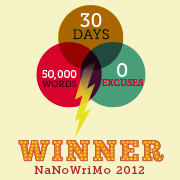I am the last and least influential person on earth to weigh in on the whole Oscar misogyny debacle. It’s been talked to death and cataloged. So I guess I just wanted to add a personal spin to it.
I have watched The Oscars every year for my entire life. My mother and grandmother loved the movies–my grandmother especially–and we always settled in under blankets and watched the entire show, delighting in seeing the stars in our living room in their most beautiful and glamorous ensembles–and live, so we knew exactly where they were and what they were wearing (which, in the 1970s and 80s was a treat, believe it or not).
And I grew up enthralled with the movies, watching endless black and white films with my grandmother who knew everything about every star like she had memorized the Old Hollywood version of a Biographical Dictionary of Celebrity Gossip. It was like having my very own low-brow Anne Helen Peterson! We watched our favorites over and over. I really can’t count how many rainy or wintry afternoons we spent watching Gone with the Wind!
In my teens, I was sure I’d grow up to write for Movieline magazine, maybe Premiere. Maybe entertainment editor for Sassy! Oddly, I had no interest in celebrity interviews. I wanted to be Joe Queenan, Libby Gelman-Waxner–writers with wacky personalities and strong opinions. It wasn’t until college that I discovered Film Theory. I quickly switched colleges to pursue it.
Film studies taught me that I’d spent my entire life “reading against the grain” to find the points of and places in entertainment that I could connect to, that I could love. I read three classic pieces in feminist film theory that rocked my world (Mulvey’s “Visual Pleasure and Narrative Cinema,” of course; “Pre-Text and Text in Gentlemen Prefer Blondes” by Lucie Arbuthnot and Gail Seneca; and Doane’s “Film and the Masquerade: Theorizing the Female Spectator”) and changed how I see movies entirely.
One might argue they ruined the movies for me, of course. But it also made me feel closer to my grandmother. who taught me how to watch movies. She wouldn’t just put a movie on and tune out. No, she offered context and celebrity gossip that taught me a great deal about film studies even though she had no idea what that was.
My grandmother was the one who said to ignore the last few minutes of any movie pairing Katherine Hepburn/Spencer Tracy. “Men used to run everything,” she explained. And they made Katherine Hepburn capitulate in some way in the last scene of her movies so the men could continue to feel like they were in charge even though Kate clearly had the upper hand by being smarter and worker harder than everybody else.
It was through my grandmother’s lens that I learned to watch movies. She filtered them for me so that I understood how to enjoy them. She was a feminist film studies pioneer.
And so it was disheartening to be reminded on Sunday night that no matter how far we’ve come here we still are. Looking for points of identification and people to root for amid a bunch of insults and degradation. And so I did what I would have done had my grandmother been there: rolled my eyes and sighed through a dumb boobs song; cheered for Adele and Shirley Bassey; gasped for Jennifer Lawrence when she stumbled; debated the sincerity of Anne Hathaway’s “It came true”–my grandmother and mother would have debated that one all night; wondered why Harry Potter didn’t give Bella Swan a hand as she limped to the mic and delivered her trademark mix of snarly and spacey; speculated about the depths of Ben Affleck’s marital misery and whether or not he was actually admitting that those blind items are true; and shook my head in sympathy at poor Kristen Chenowith trying to put up her own  charm offensive up in the midst of MacFarlane’s unyielding smarm offensive.
My grandmother would have enjoyed a lot of it, even as she picked it apart.








